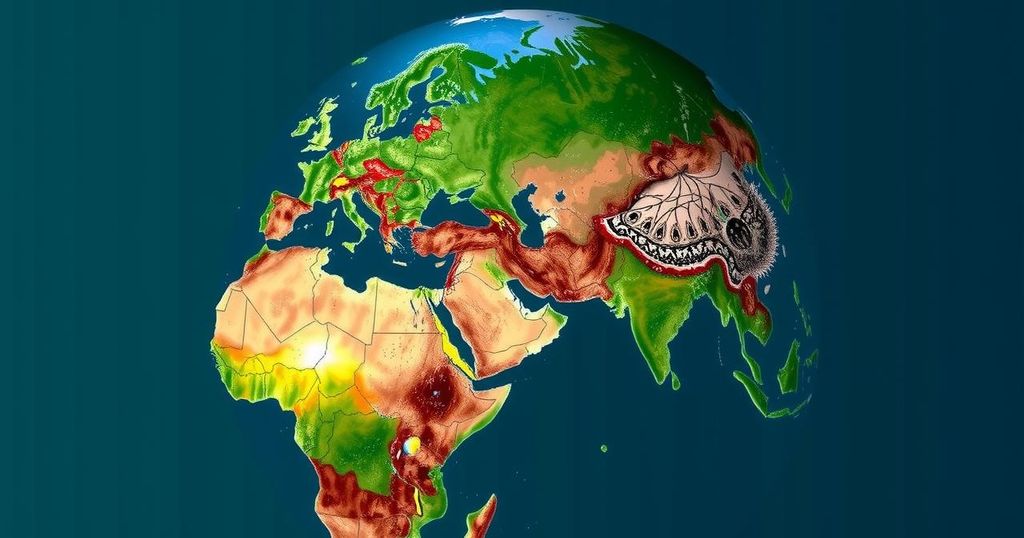Developing nations have sharply criticized the $300 billion climate deal reached at COP29, deeming it inadequate to address their significant climate challenges. Despite extensive negotiations, many representatives expressed discontent with the agreement’s financial commitments and the lack of stronger provisions for climate action. The deal falls short of expert recommendations and has sparked a debate about the necessity for more substantial support from developed economies.
During the recent COP29 Climate Conference in Baku, developing nations widely condemned a newly ratified climate financing deal that pledges $300 billion annually from influential economies, characterizing it as insufficient in light of escalating climate challenges. Despite arduous negotiations concluding on November 23, 2024, delegates from poorer countries voiced strong disapproval, deeming the financial commitment “paltry” and “abysmally poor”. India’s representative, Chandni Raina, dismissed the agreement as an “optical illusion”, expressing that it fails to address the severe climate crisis faced by vulnerable nations. Other officials echoed similar sentiments, alleging a lack of commitment from wealthier countries to adequately support those most affected by climate issues. Though the deal has been framed as a milestone achievement, it notably falls short of the $390 billion that experts suggest developed nations should contribute.
In light of widespread discontent, leaders from developing countries had arrived at COP29 seeking a substantially greater financial commitment, reflecting their urgent need for assistance to combat severe climate impacts such as rising sea levels and extreme weather patterns. The negotiations ultimately concluded with strong advocacy for a more aggressive approach toward transitioning away from fossil fuels, a commitment that was notably absent from the final agreement. Amid protests and a palpable tension during the conference, concerns about the sincerity of developed nations became increasingly evident, with accusations of negotiating in bad faith gaining momentum throughout the gathering.
While developed countries hailed the outcome as historic, underlining that the agreement represents a new endeavor in climate finance, many delegates from the developing world remained sceptical of its adequacy. Notably, much of the funding will originate from private sources rather than government contributions, raising additional concerns among public policy analysts. As the threat of climate change continues to intensify, the Baku accord reflects ongoing challenges in uniting nations to forge a comprehensive and equitable climate strategy.
The COP29 Climate Conference centered around the urgent need for substantial financial commitments from developed nations to address the escalating challenges posed by climate change, particularly for developing countries. Negotiators worked to finalize a financial pact that could facilitate investments aimed at helping poorer nations transition towards sustainable practices and mitigate disaster risks associated with climate impacts. Historically, these nations have contributed minimally to global emissions but suffer disproportionately from climate-related disasters. The $300 billion pledge emerged from lengthy and contentious negotiations, juxtaposed against the backdrop of critical climate disasters occurring across the globe.
In summary, the recent climate financing agreement reached at the COP29 Climate Conference has drawn significant backlash from developing nations. With a pledged amount deemed insufficient to mitigate severe climate impacts, frustrations reflect deeper issues surrounding equitable climate action. While developed countries regard the pact as a notable step forward, the palpable dissatisfaction among affected nations will likely require further negotiations and commitment to ensure more robust funding frameworks aligned with their needs and challenges.
Original Source: jordantimes.com






